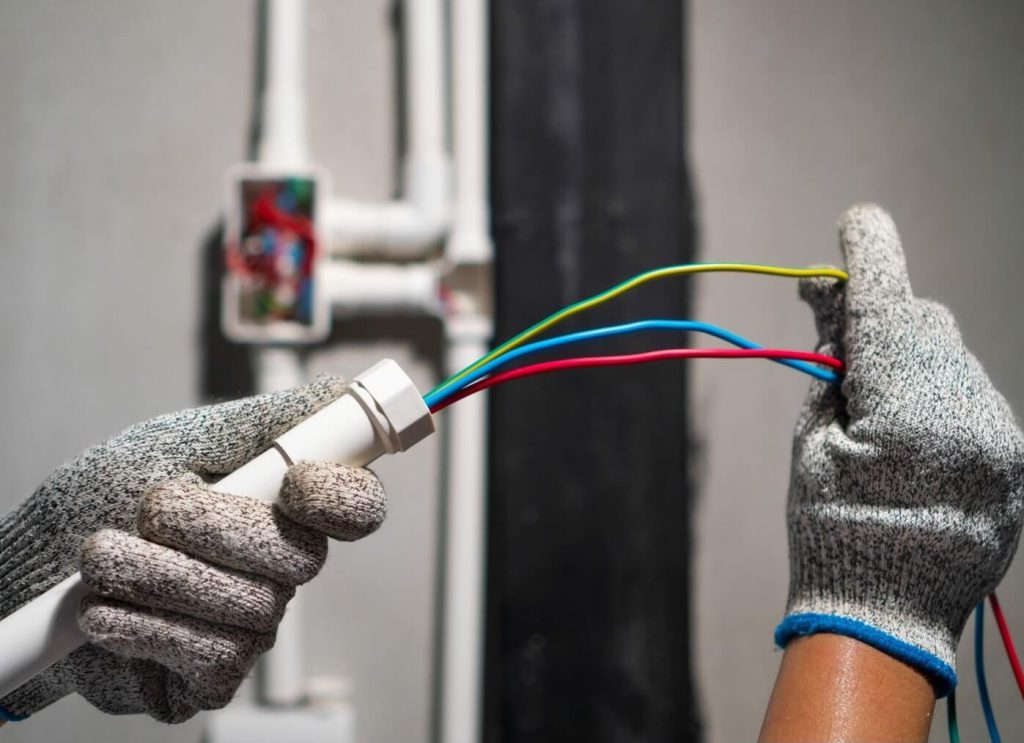
Quick Overview
House rewiring is the process of updating a home’s electrical system to ensure safety, efficiency, and compliance with regulations. While full rewiring can be costly, certain homeowners may qualify for free or subsidized rewiring through government schemes, council grants, or charitable support.
This blog will walk through:
✅ Who qualifies for free or subsidized rewiring (low-income, elderly, disabled, social housing residents)
✅ Government-funded programs like the ECO scheme and Disabled Facilities Grants
✅ Local council grants and charitable organisations offering financial help
✅ Step-by-step guide to applying for free rewiring and arranging work safely
✅ Tips for reducing costs if full funding isn’t available, including partial rewiring or interest-free loans
Rewiring a house is a major home improvement project that ensures your electrical system is safe, up to code, and energy-efficient. However, the cost of rewiring a home can be expensive, ranging from £2,000 to £5,000 or more in the UK, depending on the size and complexity of the job.
The good news is that some homeowners may qualify for free or subsidized rewiring services through government grants, local council schemes, and energy efficiency programs. In this guide, we’ll take you through the step-by-step process of getting your house rewired for free, exploring the best options available.
Who Qualifies for Free House Rewiring?
While not everyone will qualify for free rewiring, certain groups are eligible for financial assistance or grants.
Eligibility Criteria for Free Rewiring:
- Low-income households or those receiving government benefits.
- Elderly individuals or disabled homeowners.
- People living in older homes with unsafe wiring.
- Homeowners in social housing or supported living arrangements.
- Properties that fail electrical safety inspections and pose a risk.
Tip: If you suspect your wiring is outdated, an Electrical Installation Condition Report (EICR) can confirm whether rewiring is necessary.
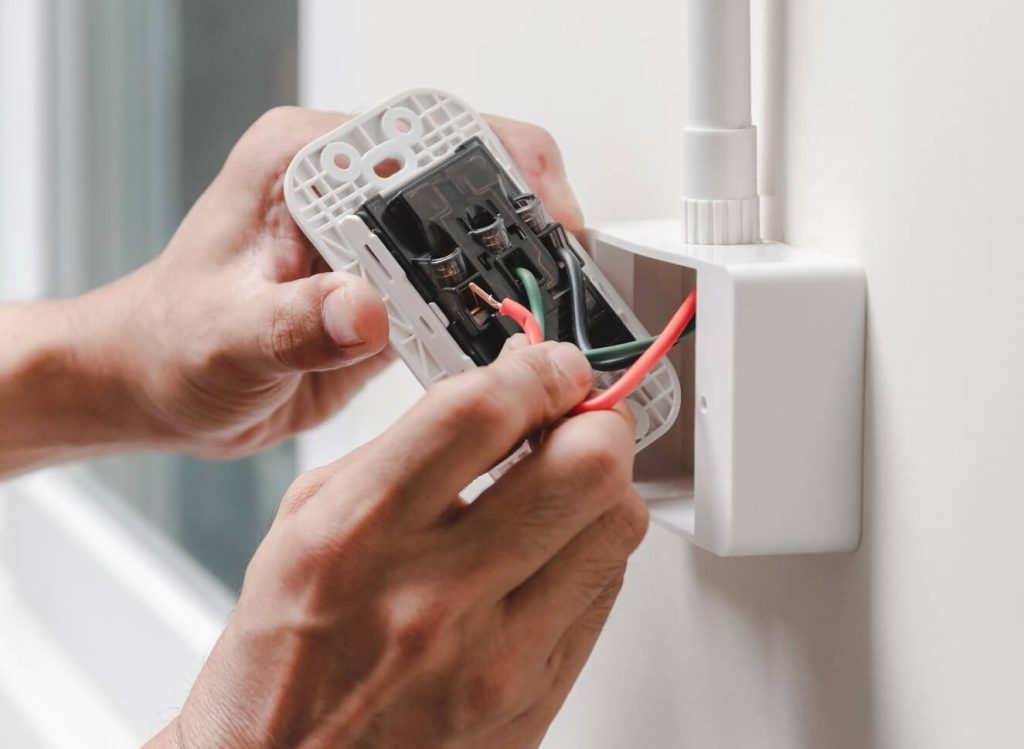
Free House Rewiring Through Government Grants
Several government-funded programs can help cover the cost of rewiring.
ECO (Energy Company Obligation) Scheme
- Funded by major UK energy companies.
- Helps low-income households with home improvements, including electrical work.
- Can cover the cost of rewiring or upgrading outdated electrical systems.
- Priority is given to homes with elderly, disabled, or vulnerable occupants.
How to Apply? Contact your energy supplier (e.g., British Gas, EDF, E.ON) and ask about ECO funding for electrical upgrades.
Local Council Home Improvement Grants
- Many local councils provide grants for essential home repairs, including rewiring.
- Grants may cover partial or full rewiring costs for eligible households.
- Some councils offer interest-free loans if full funding is not available.
How to Apply? Check your local council’s website or contact their housing department to see if grants are available in your area.
Disabled Facilities Grants (DFG)
- Available for disabled homeowners or tenants.
- Covers home modifications, including electrical rewiring for safety reasons.
- Grants of up to £30,000 in England, £36,000 in Wales, and £25,000 in Northern Ireland.
How to Apply? Apply through your local council’s housing adaptation department.
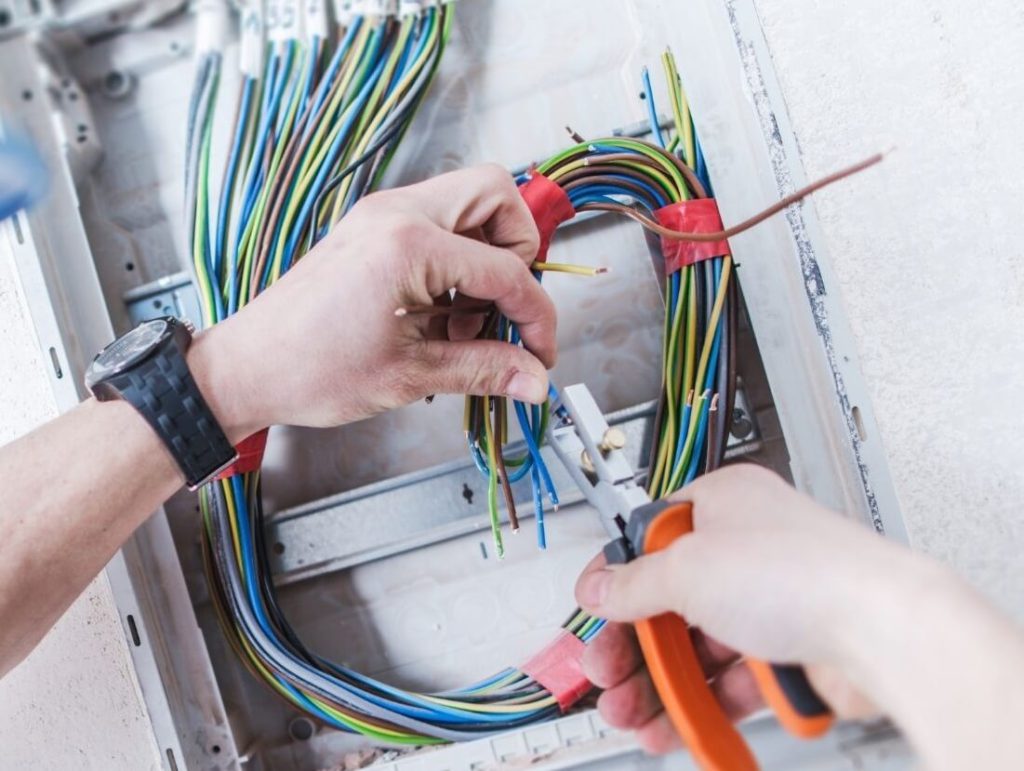
Free Rewiring for Pensioners and Low-Income Households
If you are a pensioner, receiving disability benefits, or on a low income, you may be eligible for assistance through additional schemes.
Home Repair Assistance Grant
- Offered by many local councils for home safety improvements.
- No repayment required for qualifying low-income homeowners.
Charitable Organisations
Several charities help homeowners with essential repairs:
- Turn2Us – Provides funding for home improvement needs.
- Electrical Safety First – Offers guidance on rewiring and financial assistance.
- Age UK – Supports elderly homeowners with essential home repairs.
How to Apply? Contact the charities directly to check your eligibility.
Rewiring Support for Tenants and Social Housing Residents
If you live in social housing, council housing, or a rented property, you may still be able to get free rewiring.
Social Housing & Council Tenants
- The landlord (housing association or local council) is responsible for maintaining safe electrical systems.
- Request an EICR (Electrical Inspection Report) if you suspect wiring issues.
- The council may arrange free rewiring if the property is unsafe.
Tip: Contact your housing association or local authority and report any electrical safety concerns.
Private Tenants & Landlord Responsibilities
- Landlords are legally required to ensure electrical safety under The Electrical Safety Standards Regulations (2020).
- If your home has faulty or unsafe wiring, your landlord must fix it—sometimes with the help of grants.
What to Do? Ask your landlord to carry out an electrical safety inspection and provide an EICR certificate.
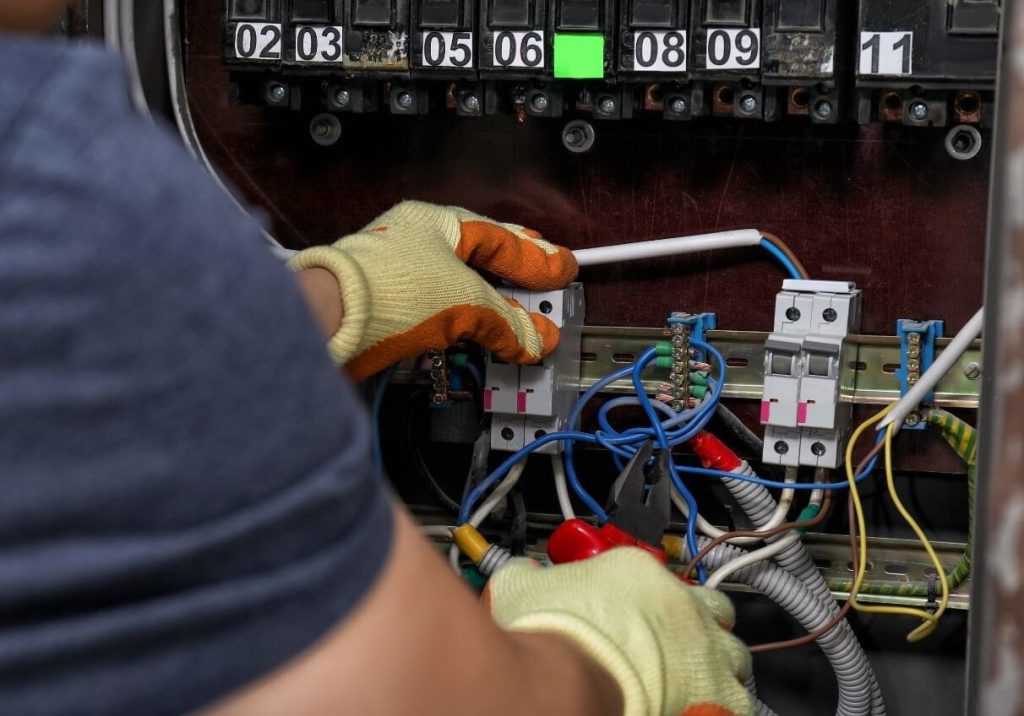
How to Apply for Free House Rewiring – Step-by-Step Guide
Step 1: Assess Your Electrical System
- Check for signs of outdated or faulty wiring (e.g., flickering lights, blown fuses, frequent circuit trips).
- Get an Electrical Installation Condition Report (EICR) from a certified electrician.
Step 2: Check Your Eligibility
- Are you on government benefits, elderly, or disabled?
- Is your home in urgent need of electrical upgrades?
- Do you live in social housing or a rental property?
Step 3: Apply for Available Grants
- Contact your local council about home improvement grants.
- Reach out to your energy provider for ECO scheme funding.
- Apply for Disabled Facilities Grants (if applicable).
Step 4: Contact Charities for Additional Help
Step 5: Arrange the Rewiring Work
- If funding is approved, licensed electricians will complete the rewiring.
- Ensure you receive an EICR certificate after the work is done.
Tip: Always work with qualified electricians registered with NICEIC or ELECSA for safety compliance.
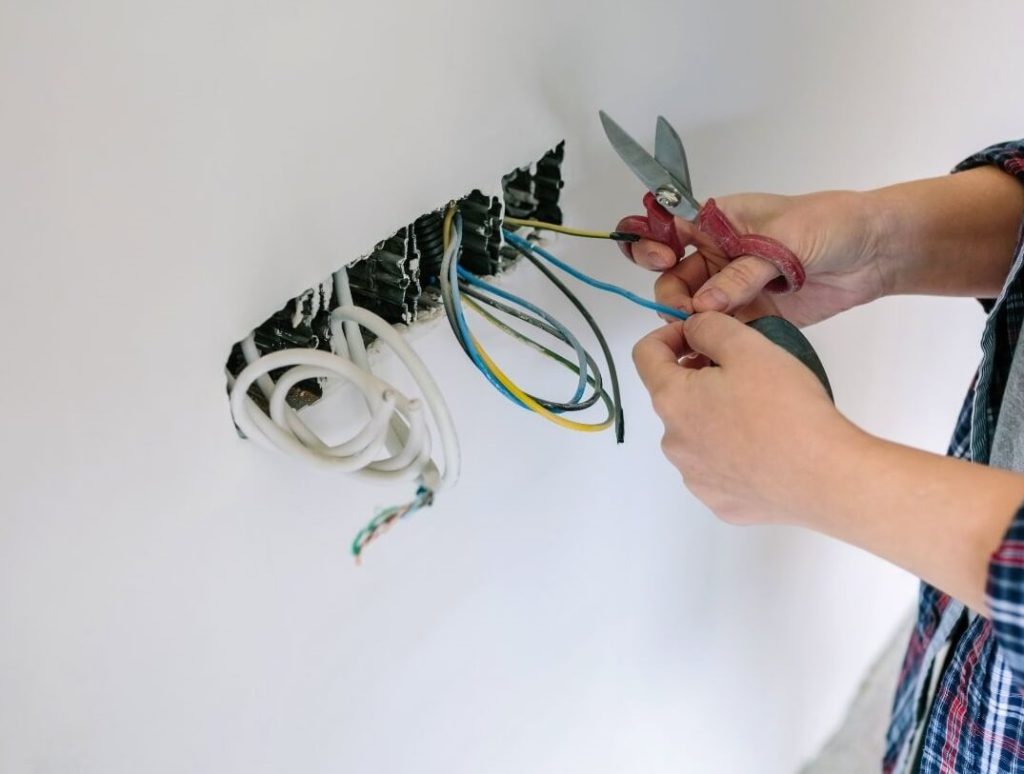
Alternative Ways to Reduce Rewiring Costs
If you don’t qualify for free rewiring, consider cost-saving options:
- Interest-Free Home Repair Loans – Some councils offer zero-interest loans for essential home repairs.
- Partial Rewiring Instead of Full Rewiring – Focus on the most urgent areas (e.g., kitchen, living room).
- DIY Electrical Upgrades – Replace switches, outlets, and fixtures to improve safety without full rewiring.
Tip: Look for electricians who offer payment plans if full funding isn’t available.
Conclusion
Rewiring your home is essential for safety and efficiency, but the cost can be overwhelming. Fortunately, several government schemes, council grants, and charities offer financial help to eligible homeowners and tenants.
Key Takeaways:
- Government grants and schemes (ECO, Local Council Grants, Disabled Facilities Grant) can cover rewiring costs.
- Low-income households, elderly individuals, and disabled residents have higher chances of qualifying.
- Social housing tenants can request free electrical upgrades from their housing provider.
- Applying for funding requires checking eligibility and submitting an EICR report.
If full funding isn’t available, consider partial rewiring, payment plans, or home repair loans.
Need help? Contact your local council, energy provider, or a relevant charity today to check your eligibility for free house rewiring!
